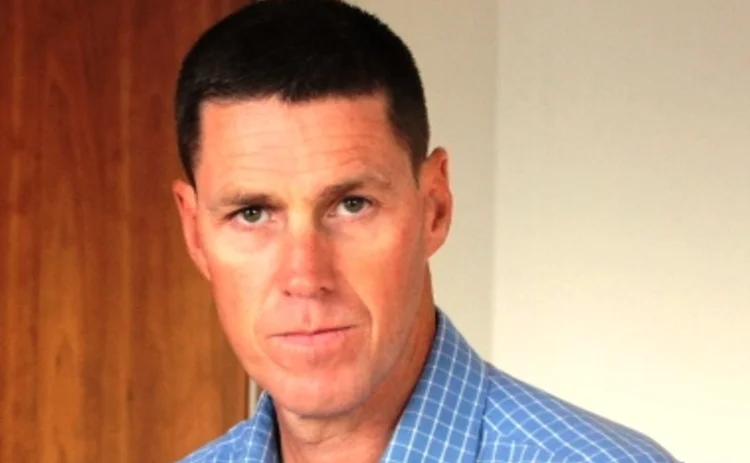June 2014: HFT: No Longer a Whale of a Time

I find it fascinating how people are able to adapt to change—both physiological and psychological—when necessary. On the physiological side, one need look no further for an example of this than the astonishing metamorphosis endurance athletes undergo when preparing for competition. Some of the changes take place literally on an intracellular level, where, for example, the number of mitochondria—the minute organelles responsible for generating the bulk of a cell’s chemical energy needs by way of adenosine triphosphate—increase, and by so doing enhance the athlete’s ability to carry out increased workloads, both in terms of intensity and duration.
Financial services firms have similarly been adapting to their new operating environment for some time now, as a consequence of the industry’s natural evolution and more explicit factors linked to regulatory changes, primarily in the wake of the 2008 global financial crisis. Similar to the discomfort athletes might feel during a tough anaerobic training session, financial services firms have been forced to deal with a variety of financial and operational challenges, although their pain is more organizational and financial than physical.
One such example of this need to adapt to change is highlighted in Jake Thomases’ news piece from the recent North American Financial Information Summit where panelists agreed that the once lucrative world of high-frequency trading (HFT) was now pretty much circling the drain.
Chris Bartlett, partner at New York-based HFT firm Nobilis Capital summed up the situation succinctly: “The opportunities in US equities for straight-speed, low-latency arbitrage are pretty much gone, unless you are a major player. The days of three people who know technology and market data, co-locating their computers to take advantage of what’s already been done, they’re just not there anymore.”
I’ve heard a number of similar claims over the past year or so, and it seems that now technology is no longer a competitive differentiator in a market with ever-shrinking margins and way past its saturation point, rendering HFT as a business model unviable for all but the largest players.
The scenario facing those firms overly reliant on their HFT revenues is not dissimilar to that of baleen whales and their filter-feeding characteristics. Krill, while minute in size, sustains the largest animals on the planet due to the bulk in which it is consumed, much in the same way that HFT firms rely on vast numbers of small orders to make the strategy profitable. But, as the industry is coming to realize, too many whales congregating to feed in one part of the ocean means that many will go hungry.
Only users who have a paid subscription or are part of a corporate subscription are able to print or copy content.
To access these options, along with all other subscription benefits, please contact info@waterstechnology.com or view our subscription options here: https://subscriptions.waterstechnology.com/subscribe
You are currently unable to print this content. Please contact info@waterstechnology.com to find out more.
You are currently unable to copy this content. Please contact info@waterstechnology.com to find out more.
Copyright Infopro Digital Limited. All rights reserved.
As outlined in our terms and conditions, https://www.infopro-digital.com/terms-and-conditions/subscriptions/ (point 2.4), printing is limited to a single copy.
If you would like to purchase additional rights please email info@waterstechnology.com
Copyright Infopro Digital Limited. All rights reserved.
You may share this content using our article tools. As outlined in our terms and conditions, https://www.infopro-digital.com/terms-and-conditions/subscriptions/ (clause 2.4), an Authorised User may only make one copy of the materials for their own personal use. You must also comply with the restrictions in clause 2.5.
If you would like to purchase additional rights please email info@waterstechnology.com
More on Trading Tech
Bloomberg Terminal’s agentic play shows rapid change in trading tech
Waters Wrap: The data giant’s conversational AI interface might seem novel, but others say having one is becoming a bare minimum in the world of trading technology.
Esma supervision proposals ensnare Bloomberg and Tradeweb
Derivatives and bonds venues would become subject to centralized supervision if the proposed reforms go through.
AllianceBernstein enlists SimCorp, BMLL and Features Analytics team up, and more
The Waters Cooler: Mondrian chooses FundGuard to tool up, prediction markets entice options traders, and Synechron and Cognition announce an AI engineering agreement in this week’s news roundup.
Ram AI’s quest to build an agentic multi-strat
The Swiss fund already runs an artificial intelligence model factory and a team of agentic credit analysts.
Fidelity expands open-source ambitions as attitudes and key players shift
Waters Wrap: Fidelity Investments is deepening its partnership with Finos, which Anthony says hints at wider changes in the world of tech development.
Market-makers seek answers about CME’s cloud move
Silence on the data center’s changes has fueled speculation over how new matching engines will handle orders.
SGX to modernize data lake
The work is part of the exchange’s efforts to enhance its securities trading platform.
Digital employees have BNY talking a new language
Julie Gerdeman, head of BNY’s data and analytics team, explains how the bank’s new operating model allows for quicker AI experimentation and development.








